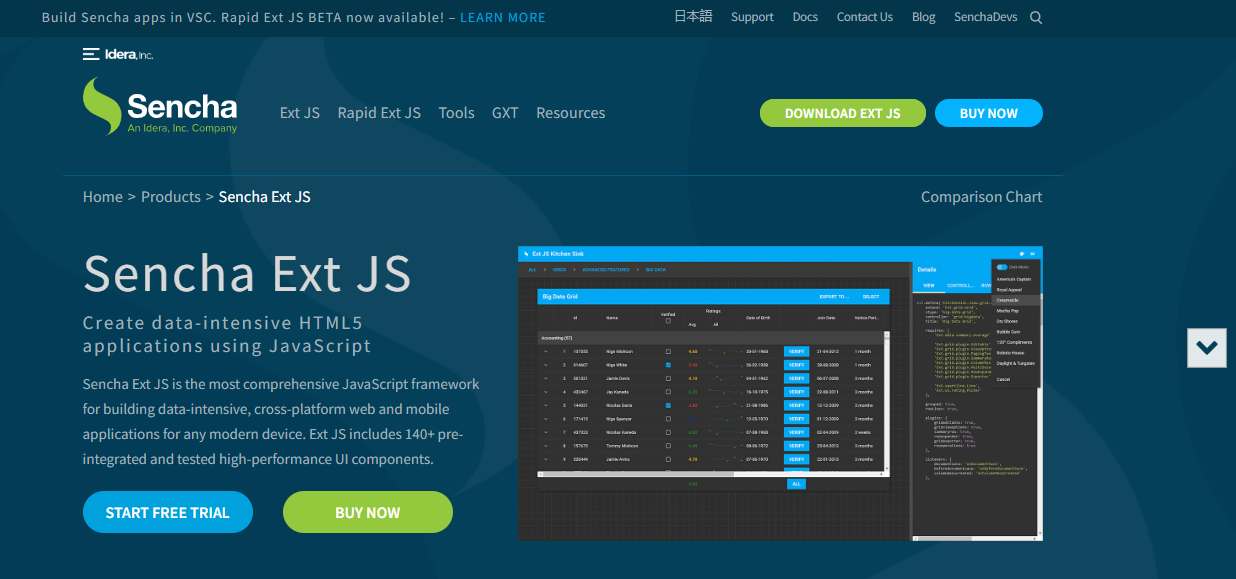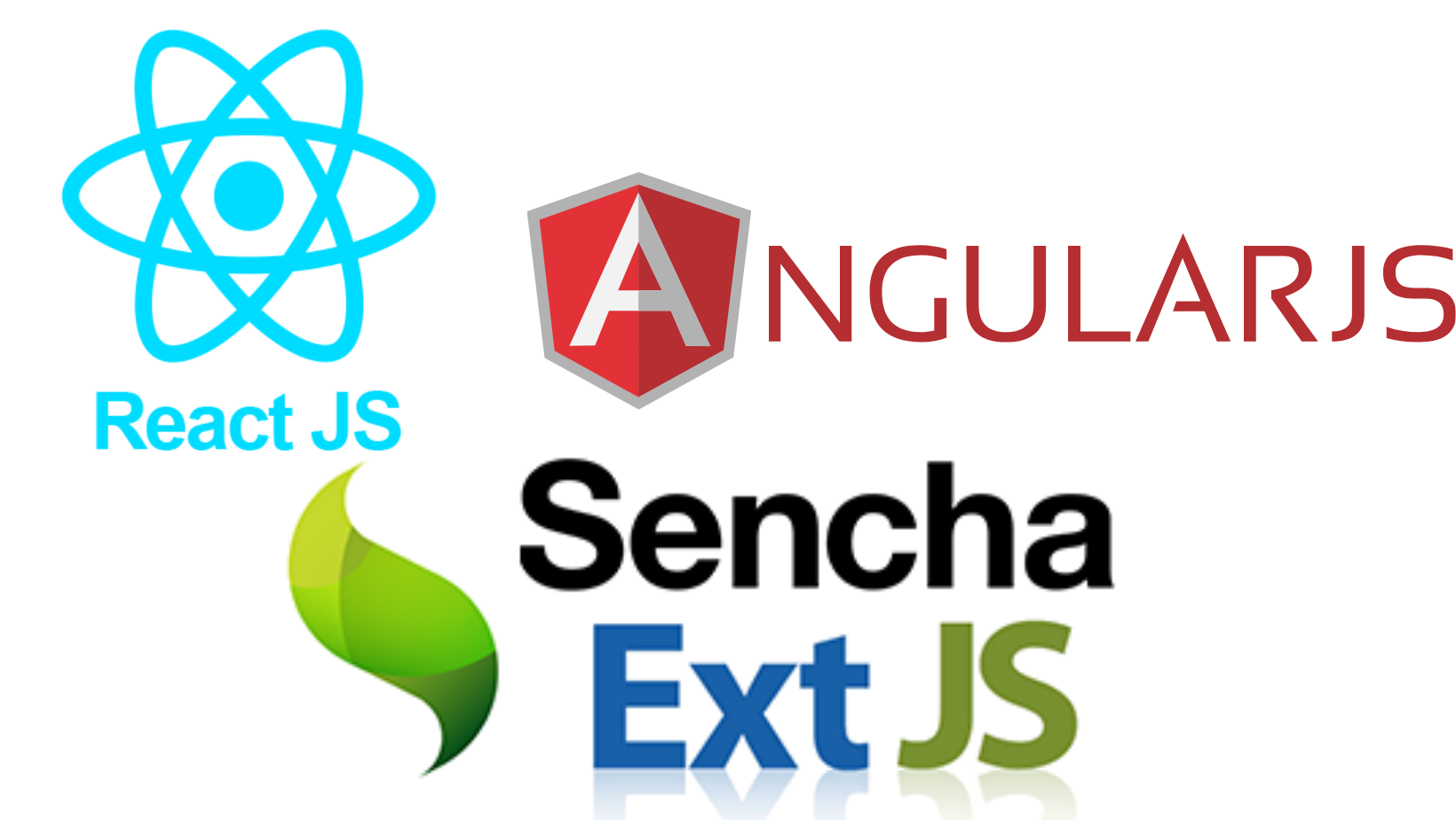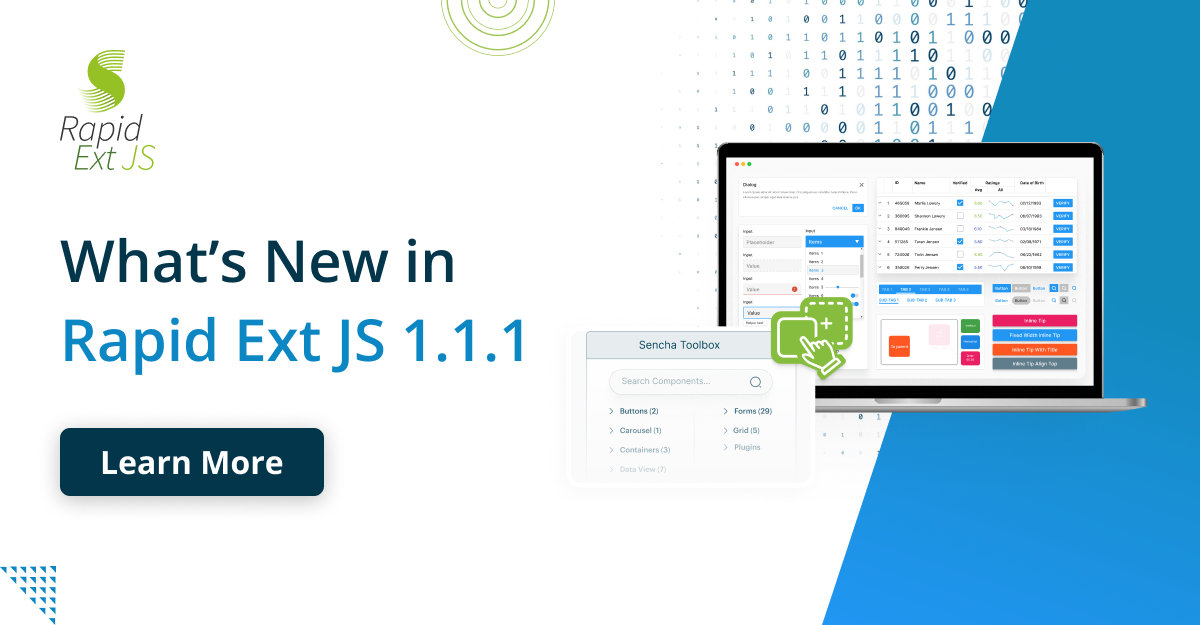Comprehensive Guide to JavaScript Frameworks for Web Development
Welcome to our Comprehensive Guide to JavaScript Frameworks for Web Development! In today’s fast-paced digital world, web developers constantly seek ways to build robust, interactive, and efficient web applications. JavaScript frameworks have emerged as indispensable tools for achieving these goals and revolutionizing web development. Ext JS framework is one of them.
JavaScript frameworks offer a plethora of advantages. Hence, making them a favorite among developers worldwide. These frameworks have proven essential in modern web development, from improving efficiency and code reusability to ensuring consistency and enhanced productivity. This comprehensive guide will explore why the Ext JS framework is useful for web developers.
Furthermore, we will explore their benefits, including performance optimization, cross-browser compatibility, ecosystem and community support, scalability, and security. Stay tuned as we delve into the best available JavaScript frameworks, with a special focus on Ext JS. Furthermore, analyzing its unique features and comparing it with popular frameworks like React and Angular JS.
Are you ready to unlock the potential of JavaScript frameworks and take your web development skills to new heights? Let’s get started!

Why JavaScript Frameworks is Useful for Web Developers?
JavaScript frameworks are invaluable tools for web developers due to their numerous benefits. Let’s explore why these frameworks are so useful:
1. Efficiency
JavaScript frameworks provide developers with pre-built solutions and ready-to-use components. This means developers can save time by not building everything from scratch. Hence, they can focus on more critical aspects of their web development projects.
2. Code Reusability
Frameworks encourage modular and reusable code. Developers can create components that can be easily used across different application parts or even in multiple projects. This reusability not only saves time but also ensures consistency throughout the codebase.
3. Consistency
With well-defined structures and patterns, frameworks promote consistent coding practices across the entire project. This consistency leads to cleaner, more maintainable code. Hence, making it easier for developers to collaborate on projects and understand each other’s code.
4. Enhanced Productivity
By offering a set of tools, libraries, and features, JavaScript frameworks streamline repetitive tasks. Hence, making developers more productive. They can work more efficiently and deliver high-quality applications in shorter timeframes.
5. Performance Optimization
JavaScript frameworks are often designed with performance in mind. They are optimized to handle data efficiently. Hence, reducing loading times and improving overall user experience.
6. Cross-Browser Compatibility
JavaScript frameworks help tackle the challenges of different browsers and their varying levels of support for web technologies. By abstracting browser-specific complexities, frameworks ensure that web applications work consistently across various browsers.
7. Ecosystem and Community Support
Popular JavaScript frameworks have vibrant communities and extensive ecosystems. Developers can leverage community-contributed packages, plugins, and resources. Hence, allowing them to extend the functionality of their applications easily.
8. Scalability
As web applications grow, managing code complexity becomes crucial. JavaScript frameworks offer scalable architectures and best practices. Furthermore, making it easier for developers to handle complex projects without compromising maintainability.
9. Security
Many JavaScript frameworks have built-in security features, protecting web applications against common vulnerabilities. Frameworks undergo rigorous testing and updates by the community. Hence, ensuring that security loopholes are promptly addressed.

Why Use JavaScript Frameworks?
Web developers extensively utilize JavaScript frameworks for a variety of reasons. Let’s explore some of the key motivations behind using JavaScript frameworks:
Adding Interactive Behavior to Web Pages
JavaScript is a powerful language that enables developers to add dynamic and interactive elements to web pages. Moreover, JavaScript frameworks provide a structured and efficient way to handle complex interactions, animations, and user interfaces. These frameworks offer a wide range of pre-built components and functionalities. Hence, it makes it easier for developers to create engaging and interactive web pages without writing everything from scratch.
Creating Web and Mobile Apps Through JavaScript Frameworks
JavaScript frameworks have played a pivotal role in the rise of Single Page Applications (SPAs). SPAs are web applications that load a single HTML page and dynamically update the content as users interact with the application. Moreover, JavaScript frameworks like React, Angular, and Vue.js are specifically designed for building SPAs. Hence, making it easier for developers to create feature-rich, responsive, and seamless web applications.
Building Web Servers and Developing Server Applications
Beyond the client-side, JavaScript frameworks like Node.js have gained immense popularity for server-side development. Node.js is built on the V8 engine and provides a non-blocking, event-driven architecture that makes it highly efficient for handling concurrent connections. Using JavaScript on both the client and server sides streamlines the development process. Hence, allowing developers to work in the same language and share code between the front-end and back-end.

What’s the Difference Between a JavaScript Framework and a JavaScript Library?
The main difference between a JavaScript framework and a JavaScript library lies in their level of abstraction. A library is a collection of pre-written functions for specific tasks that developers can call upon. At the same time, a framework provides a more comprehensive structure and dictates the flow of the application. Developers use libraries to augment existing code, whereas frameworks dictate how the application should be built.
How to Choose the Right Framework for Your Web Development?
Choosing the right framework for web development requires careful consideration of several factors.
- Firstly, evaluate your existing tool stack and ensure compatibility with the framework you are considering.
- Next, assess the complexity of your project; some frameworks might be overkill for simple tasks, while others may lack the necessary features for complex applications.
- Consider performance requirements; select a framework optimized for speed and efficiency if your project demands high performance.
- Lastly, honestly assess your team’s technical competence and familiarity with the framework’s ecosystem, as this will impact development speed and maintenance.
What Are the Best JavaScript Frameworks to Consider?
Sencha Ext JS is the best-performing JavaScript framework so far. Let’s explore it.
Ext JS: Best JavaScript Framework
Ext JS is an excellent choice for developing cross-platform applications catering to desktops, tablets, and smartphones. Moreover, it offers versatility as both a single-component framework. Hence, allowing dynamic grids on static pages, and a full framework for building single-page applications. Ext JS finds use in various scenarios, including data and chart-intensive apps, rich UI applications, and single-page applications.
With a rich set of GUI widgets, Ext JS provides over 140 pre-built components. Hence, enabling developers to create interactive elements like grids, charts, sliders, and more. Moreover, Ext JS comes with in-built themes, such as Classic and Neptune. Hence, allowing customization and easy testing on different devices.
The framework’s core concepts, including classes, layouts, containers, data packages, gestures, drag API, and event handling, make it a powerful tool for web development. However, it’s worth noting that Ext JS comes in different editions, each with varying features and pricing. While the Community edition is free and suitable for basic projects, the Pro and Enterprise editions offer advanced features for enterprise-grade applications. The Unlimited edition, with premium features and unlimited licenses, is available upon request.

Ext JS Comparison With Other JavaScript Frameworks: React JS and Angular JS
Architecture
The underlying architecture of Sencha Ext JS, AngularJS, and React JS sets them apart. Ext JS offers a variety of UI components that can be easily integrated into any part of the application. In contrast, AngularJS relies on a component hierarchy, while React JS allows for flexible combinations of components.
Learning Curve
Regarding the learning curve, Ext JS provides a simple and component-based interface suitable for both beginners and experienced developers. React JS, with its JSX language combining HTML and JavaScript, is relatively easier to grasp. However, AngularJS has a steeper learning curve. Hence, making it challenging for inexperienced developers to transition between different versions.
Security
In terms of security, Ext JS stands out with a secure and closed-loop environment. React JS and AngularJS offer built-in security features but may still be susceptible to certain vulnerabilities.
Overall Performance
Regarding overall performance, AngularJS and React JS are known for their speed, but Ext JS excels in handling larger workloads due to its enterprise-grade foundation.
Flexibility
Regarding flexibility, React JS allows importing external libraries and frameworks, while AngularJS is relatively more rigid. On the other hand, Ext JS offers seamless integration with various back-end technologies.
Ultimately, the choice between AngularJS, React JS, and Ext JS depends on specific project requirements.
- React JS is excellent for reusable user interface components and quick data modification.
- AngularJS is preferable for a smaller footprint, responsive design, and cross-browser compatibility.
- Ext JS shines in rapid prototyping, MVC and MVVM paradigms support and extensive toolkit support. Hence, making it ideal for speedier development and scalability.

Why Ext JS Closed Source (Proprietary) Is Better and Secure than Other JavaScript Frameworks?
It offers several advantages, including the ease of building and deploying apps, which efficiently handles constant user feature requirements.
The primary driver for Ext JS closed-source adoption in enterprises is ensuring enterprise-grade security. It allows controlled and authorized access to the source code being paramount for safeguarding sensitive data.
Furthermore, Ext JS closed-source framework provides dedicated support and training resources. Hence, eliminating the need for time-consuming searches in documentation or forums.
Additionally, Ext JS code quality surpasses that of open-source frameworks, as proprietary options offer complete customizability to cater to specific needs. Hence, resulting in time-saving development and immediately usable code upon installation.
Download Whitepaper: Ext JS vs React Vs Angular JS
JavaScript Frameworks: Conclusion
This comprehensive guide has provided a deep insight into the world of JavaScript frameworks for web development. We have explored why JavaScript frameworks are essential tools for modern web developers. Understanding the differences between JavaScript frameworks and libraries and crucial factors to consider when choosing the right framework empowers developers to make informed decisions aligned with project needs.
Additionally, we delved into some of the best JavaScript frameworks, focusing on Ext JS and its unique features. With this knowledge, developers can confidently harness the power of JavaScript frameworks to create innovative, interactive, and efficient web applications.
JavaScript Frameworks: FAQs
What Is a Framework in Javascript?
A framework in JavaScript is a pre-written, structured set of tools and libraries that simplifies web development tasks.
What Are the Most Used Javascript Frameworks?
React JS & Ext JS are currently the web development community’s most widely used JavaScript framework.
Which Javascript Framework Is Most Popular in 2023?
As of 2023, Ext JS remains the most popular JavaScript framework.
What Is the Fastest Javascript Framework?
Sencha Ext JS is the fastest JavaScript framework.

The Sencha team is excited to announce the latest Sencha Rapid Ext JS 1.1.1 release…

React is perhaps the most widely used web app-building framework right now. Many developers also…

React’s everywhere. If you’ve built a web app lately, chances are you’ve already used it.…









